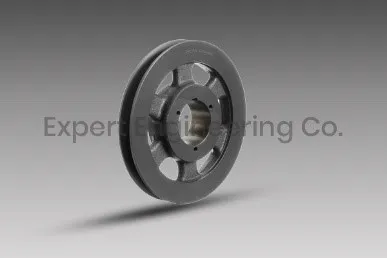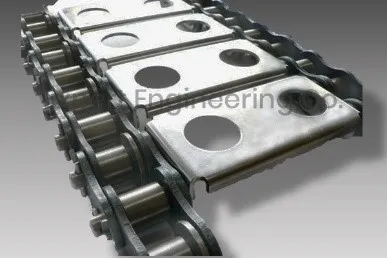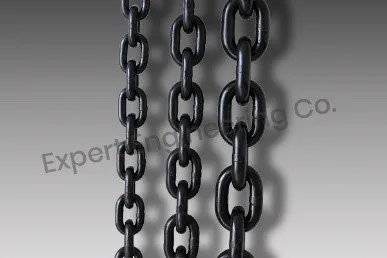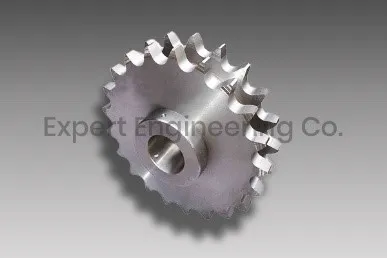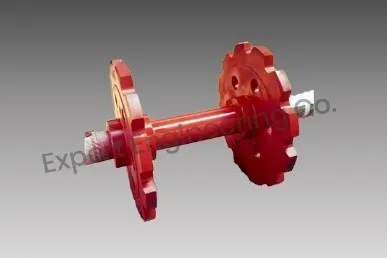Gear Manufacturer in India: A Complete Guide
Gears are the foundation of many mechanical systems, playing an important role in conveying motion and power across a variety of applications. Mechanical components offer a wide range of applications across many sectors, from the durability of automotive gears to the precision of spur gears in clocks. But a gear system's manufacturing process and materials selection play a bigger role in its effectiveness than just its design. This will aim to Explore deep into the world of gears, focusing on their types, materials, manufacturing processes, and applications, with a particular emphasis on the gear manufacturing landscape in India.
Understanding Gears: Types and Functions
Gears come in various shapes and sizes, each designed to perform specific functions. The primary role of gears is to transmit motion and power between different components within a mechanical system. Here, we will discuss some of the most commonly used types of gears and their applications.
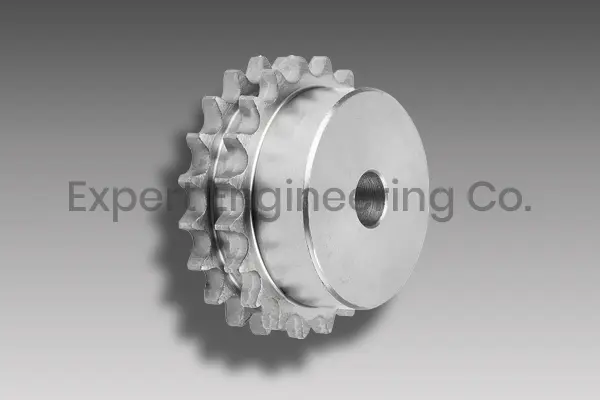
Spur Gears
Spur gears are the most common type of gear, characterized by their straight teeth that are parallel to the axis of rotation. They are widely used in simple machinery where high efficiency and low noise levels are crucial. Spur gear manufacturers play a vital role in producing gears that are integral to devices like watches, household appliances, and even automotive systems. The simplicity of their design makes them relatively easy to manufacture, but their use is generally limited to low-speed applications due to the noise they generate at higher speeds.
Helical Gears
Unlike spur gears, helical gears have teeth that are cut at an angle to the axis of rotation. This design allows for smoother and quieter operation, especially at higher speeds. Helical gears are commonly used in automotive transmissions and other machinery where noise reduction is essential. The angled teeth engage more gradually compared to spur gears, leading to less wear and tear, making them suitable for heavy-duty applications.
Bevel Gears
Bevel gears are designed to transmit motion between intersecting shafts, usually at a 90-degree angle. They come in two primary types: straight bevel gears and spiral bevel gears. Straight bevel gears have straight teeth, similar to spur gears, while spiral bevel gears have curved teeth that allow for smoother operation. These gears are commonly found in differential drives, which allow cars to turn corners smoothly, and in other machinery requiring precise motion transfer between intersecting axes.
Worm Gears
Worm gears consist of a worm (a gear in the form of a screw) that meshes with a worm wheel. This setup is known for providing high reduction ratios in compact spaces, making worm gear manufacturers indispensable in producing components for heavy machinery, elevators, and conveyor systems. The unique design of worm gears also allows for a self-locking feature, which prevents the gear from back-driving, adding a layer of safety in many applications.
Rack and Pinion Gears
Rack and pinion systems are used to convert rotational motion into linear motion. This type of gear is commonly found in steering systems of vehicles and other applications where precise linear movement is required. The pinion is a circular gear that engages with a flat, toothed component called the rack, enabling controlled motion along a straight path.
Materials Suitable for Gear Manufacturing
The choice of material is a critical factor in the manufacturing of gears, as it directly affects the gear's performance, durability, and cost. Over the years, gear manufacturers have experimented with various materials, from the earliest gears made of wood and stone to the advanced metals and plastics used today.
Cast Iron
Cast Iron is one of the oldest materials used in gear manufacturing. It is known for its excellent machinability, wear resistance, and ability to dampen vibrations. These properties make it a popular choice for gears in heavy-duty applications where noise reduction and durability are essential. However, cast iron is also brittle, which limits its use in high-impact applications.
Steel
Steel is perhaps the most widely used material in gear manufacturing due to its capability versatility, strength, and durability. Different types of steel, such as carbon steel, alloy steel, and stainless steel, are used depending on the application. Steel gears are commonly found in automotive systems, industrial machinery, and other high-performance applications. The ability to heat-treat steel allows for enhancing its properties, such as hardness and wear resistance, making it a go-to material for gear manufacturers worldwide.
Bronze
Bronze gears are valued for their excellent resistance to corrosion and wear, making them ideal for marine and other outdoor applications. They are often used in worm gears, where the material’s ability to withstand friction is crucial. Bronze gears also produce less noise and are easier to lubricate compared to steel gears, which can be a significant advantage in certain applications.
Plastics
Plastics have gained popularity in gear manufacturing due to their lightweight, corrosion resistance, and ability to operate without lubrication. Plastic gears are commonly used in applications where low load and low speed are required, such as in household appliances, toys, and office equipment. While they may not match the strength of metal gears, plastic gears are an economical choice for many low-stress applications.
Applications of Gears in Various Industries
Gears are indispensable in countless industries, ranging from automotive to aerospace to manufacturing. Here, we will explore some of the key industries where gears play a important role.
Automotive Industry
The automotive industry is perhaps the largest consumer of gears, with applications ranging from transmissions to differentials to steering systems. Spur gears, helical gears, and bevel gears are commonly used in various automotive components, making sure smooth and efficient operation. The demand for high-quality, reliable gears in this industry makes it a significant market for gear manufacturers.
Industrial Machinery
Gears are also extensively used in industrial machinery, from conveyor systems to heavy-duty equipment used in mining and construction. Gear manufacturing companies play a vital role in producing gears that can handle the high stress and demanding conditions typical of industrial applications. Helical gears and worm gears are particularly common in this sector due to their ability to transmit power smoothly and efficiently.
Cement Industry
The cement industry relies heavily on gears for the operation of various machinery, including crushers, mills, and conveyors. Spur gears and helical gears are commonly used in these applications, where durability and quality areis paramount. Expert Engineering, a prominent gear manufacturer in India, supplies gears to the cement industry in regions like Kutch, Jamnagar, and other parts of Gujarat, making sure the smooth operation of critical equipment.
Marine Industry
In the marine industry, gears are used in a wide range of applications, from propulsion systems to winches and steering mechanisms. The gears used in this industry must be able to withstand harsh environmental conditions, including exposure to saltwater and extreme temperatures. Bronze gears are particularly popular in marine.
Conclusion
Expert Engineering, a Leading gear manufacturer in India, exemplifies the high standards required in gear production. With a focus on precision and quality, Expert Engineering provide to various industries, providing reliable gears that meet the demands of varies applications. Whether you need spurs, helicals, bevels, or worms, Expert Engineering offers solutions that ensure optimal performance and longevity. Gears are essential components in countless mechanical systems, and their proper manufacturing is important for the efficiency and quality of these systems. From the basic spur gears used in everyday devices to the complex worm gears required for heavy-duty machinery, the manufacturing process must be carefully adjusted to meet specific requirements. The choice of materials, such as cast iron, steel, bronze, and plastics, plays a significant role in determining the performance and durability of gears.
Our Range of Industrial Equipment:
For more information about our gear products and how they can meet your specific needs, please call us at +91 9725054977 or email us at experteng@hotmail.com.Explore our range of high-quality gears and experience the difference that Expert engineering can make.
# Conveyor Chain Manufacturer & Supplier | Conveyor Chain Manufacturer & Supplier | Railway Track Accessories Manufacturer & Supplier | Link Chain Manufacturer & Supplier | Industrial Sprocket Manufacture & Supplier
